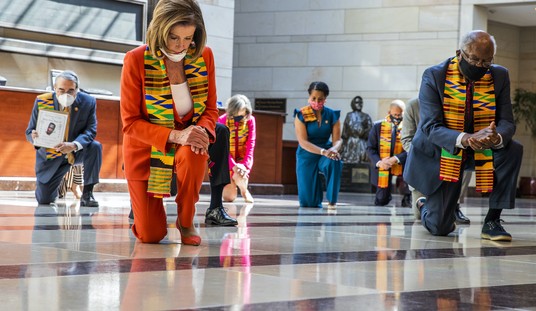Rep. Elijah Cummings tried to short-circuit his committee’s probe into the IRS scandal by releasing the full transcript of an interview with a mid-level manager, which the ranking Democrat argued made the investigation “case closed.” National Review’s Eliana Johnson argues in today’s Wall Street Journal that the only case that’s closed is that Cummings is running interference for the IRS and the White House. Not only does the testimony of John Shaefer not answer the questions about the extent of the scandal, Shaefer didn’t provide any potential answers at all:
Given the media coverage that the tea party was receiving, Mr. Shafer deemed the application a “high profile” matter and alerted his managers to its existence. Shortly thereafter, according to his testimony, lawyers in the IRS’s Washington, D.C., office said, “We want to look at the case.” On the evidence of the Washington office’s interest in that initial case, Mr. Shafer said IRS agents in Cincinnati then held the applications of tea-party groups until they were given “further direction” from D.C.
Case closed, according to Mr. Cummings, who wrote in a letter to Mr. Issa: “These statements by the screening group manager appear to directly contradict your allegations of political motivation.”
If Mr. Shafer or Mr. Cummings could read the minds of IRS officials in Washington, that might be true. In reality, Mr. Shafer was unable to say why officials in Washington were so interested in the tea-party cases or whether the officials’ interest was politically motivated.
“Did you have an understanding at the time about what the reason was for sending the cases [to Washington] for review?” investigators asked him. “No,” he responded. They pressed further. “Do you have personal knowledge of the motivations of Washington and how they worked the tea party cases?” “I do not,” Mr. Shafer said.
Johnson also points out that a case-closed conclusion ignores the information in other testimony that has already been conducted before the House Oversight Committee. That includes very troubling recollections from Elizabeth Hofacre, which we have excerpted at length here, but also from Gary Muthert, who testified that the IRS headquarters in Washington “wanted some [Tea Party] cases,” for purposes unknown. Shaefer certainly didn’t provide any answers to those questions, nor did he pretend to do so, unlike Cummings.
Johnson concludes with a few more questions that need answering:
Who at the IRS, for instance, developed the intrusive and exhaustive questions that were sent to the tea-party groups? Why did so many of those groups have to wait years for their applications to be processed, and why are many more still waiting? Who specifically were the IRS officials in Washington directing the Cincinnati agents targeting the tea-party organizations?
If the House Oversight Committee can overlook the distractions thrown up by one of its members, the answers may prove illuminating about the way Washington has worked during the Obama administration.
Indeed. And it will also be illuminating to see how many more Democrats on Oversight want to turn themselves into political human shields for the oh-so-sympathetic IRS. The fact that Cummings tried to do so makes it look as though the IRS isn’t the end of this particular road; otherwise, why try to end the probe with a stunt like this? Who benefits from trying to end scrutiny of the IRS’ political targeting? I don’t see much upside for Cummings if the problem stays isolated within that agency.








Join the conversation as a VIP Member